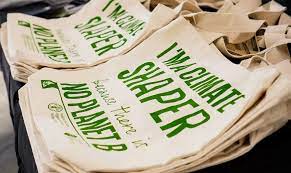Be the change: What we have learned from the first half of our Summer School in New York
We have now officially passed the halfway point of our FF4CC Smart Cities Summer School. Our program so far has been jam-packed with information and inspiration and we’re not done yet!
A few days ago, on the 42nd anniversary of the 1977 New York City blackout, Manhattan was once more plunged into darkness. The event is said to have left as many as 72,000 customers in the dark. Although its cause is not yet known, events like these truly highlight the necessity to increase the resilience of our cities. This week our first edition of #FF4CC Summer School in New York, in collaboration with FAO, has begun. We have gathered and organized information stemming from inspiring stories of the great speakers and future food heroes met through our learning experiences.
The key ingredients to cook our regeneration recipes are:
- HUMANA COMMUNITAS – Not just us or you, but an entire community keeping diversity as a core value.
- TOOLS & PLATFORMS – That allow us all to facilitate and enable.
- MODELS – That help us to replicate our positive results and make our impact exponential.
- METRICS – That allow us to measure our impacts
FOOD DIPLOMACY Where communities can drive change, governments and policymakers can drive larger structures. It is and will continue to be their responsibility to look towards the future, identify challenges and implement strong solutions to challenges both known and unknown. During our time with Portal Experience at Shared_Studio, we had the opportunity to share a meal spanning continents. Sitting in New York we opened up a real-time dialogue with a group from Puerto Rico. Over dinner, we shared thoughts and compared contexts. By the time we said goodbye, we all had a better understanding of the steps that local and national governments are taking in a reaction to current social and environmental challenges as well as an idea of areas that need improvement
気候変動に強い生態系
As we look towards the future and the design of climate-smart cities, it will become increasingly important to recognise the effect of our actions. A number of questions will need to be answered. How do we cater to a growing population? How do we increase efficiency and decrease loss? How do we feed future cities ethically and consciously? All of these questions, and many more, will need to be answered while we move towards a more inclusive, resilient and conscious future. Aerofarms is one company making progress on this front. They move agriculture into city limits to shorten supply chains and improve access to high quality ingredients. By employing aeroponics they are also able to increase the efficiency of their production. Through a data centered approach, they are truly turning agriculture into a modern art form.
FOOD IDENTITIES
As borders continue to become less well defined, we need to find a way to better honour and support people and their cultures. People are increasingly defining and redefining themselves through the food they consume and the ways in which they consume it. Burlap & Barrel sources unique spices for both professional chefs and home cooks. They work directly with smallholder farmers in an effort to directly support and improve their livelihoods while supporting their cultures through their unique products.
繁栄
Prosperity is a term of great power that needs to be better understood. Prosperity is not isolated to financial gain but needs to grow to encompass important components including emotional, physical, mental and cultural prosperity. Our understanding of prosperity needs to evolve to carry the weight that it requires. The SDGs are an incredible place to start when working towards an inclusive definition of prosperity. Ann Rosenberg is truly a pioneer in this regard. Together with SAP, Ann actively strives to place the SDGs at the core of important conversations. As she says, “When you build a solution, it needs to be a sustainable solution”. We believe that this statement includes prosperity in the broader sense. SDGs First!
CIRCULAR SYSTEMS
For good reason, circularity is a term that has gained much attention in recent years. As we plan for the future, it will be important to continue to satisfy a need to increase efficiency through circularity. This will require careful consideration of our food system and the identification and targeted improvement of points of inefficiency. This is an undertaking that has been claimed by many. One example is Bad Apple Produce. Bad Apple sells products that may otherwise be disregarded for no other reason than they don’t fit the societal perception of perfection. They say, “A curly carrot or lopsided lemon tastes as good as the symmetrical ones. In some cases, produce that looks different from the grocery store standard tastes even better!”

